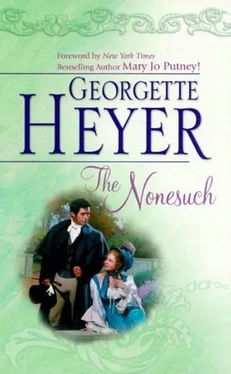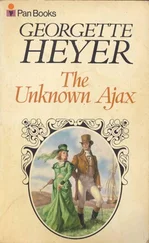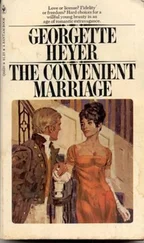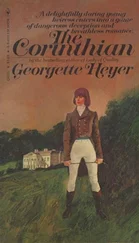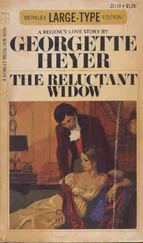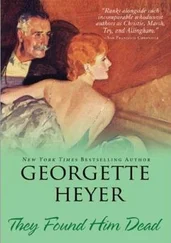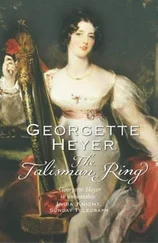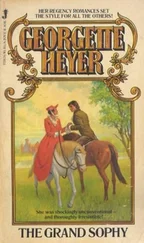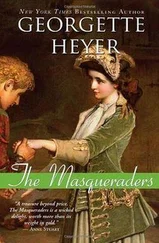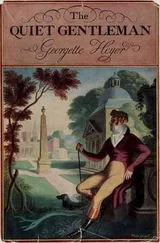“That’s true!” exclaimed Tiffany, much struck. She broke into laughter, flitting across the room to bestow a brief em-brace upon Miss Trent. “I do love you, you horrid thing, because however odious you may be you are never stuffy! I won’t admire myself any more: I’ll beg pardon for being an antidote instead! Oh, Patience, are you positively sure Sir Waldo is coming?”
“Yes, for Wedmore told Papa that he had received orders from Mr Calver’s lawyer to have all in readiness for Sir Waldo by next week. And also that he is bringing another gentleman with him, and several servants. The poor Wedmores! Papa said all he might to soothe them, but they have been thrown into such a quake! Mr Smeeth seems to have told them how rich and grand Sir Waldo is, so, of course, they are in dread that he will expect a degree of comfort it is not in their power to provide for him.”
“Now, that,” suddenly interjected Mrs Underhill, “puts me in mind of something I should like to know, my dear! For when my Matlock told me I couldn’t credit it, for all she had it from Mrs Wedmore herself. Is it true that Mr Calver left them nothing but twenty pounds, and his gold watch?”
Patience nodded sorrowfully. “Yes, ma’am, I’m afraid it is. I know one shouldn’t speak ill of the dead, but one can’t help feeling that it was very wrong and ungrateful, after so many years of faithful service!”
“Well, for my part, I never did see, and no more I ever shall, that being dead makes a scrap of difference to what you was like when you were alive!” said Mrs Underhill, with unwonted energy. “A nasty, disagreeable clutchfist he was, and you may depend upon it that’s what he is still! And not in heaven either! If you can tell me who ever said one should speak respectfully of those who have gone to the other place, you’ll have told me something I never heard before, my dear!”
Patience was obliged to laugh, but she said: “No, indeed, but perhaps one ought not to judge, without knowing all the circumstances. Mama, I own, feels as you do, but Papa says we can’t know what may have been at the root of poor Mr Calver’s churlishness, and that we should rather pity him. He must have been very unhappy!”
“Well, your Papa is bound to say something Christian, being a Reverend,” replied Mrs Underhill, in a reasonable spirit. “The ones I pity are the Wedmores—not but what they’d have left that old screw years ago, if they’d had a mite of sense, instead of believing he’d leave them well provided for, which anyone could have guessed he wouldn’t, whatever he may have promised them! How are they going to find another situation at their time of life? Tell me that!”
But as Miss Chartley was quite unable to tell her she only sighed, and shook her head, thus affording Tiffany an opportunity to turn the conversation into another, and, in her view, far more important channel. She asked her aunt how soon after his arrival she meant to call on Sir Waldo.
Mrs Underhill’s origins were humble; with the best will in the world to conduct herself like a lady of quality she had never managed to grasp all the intricacies of the social code. But some things she did know. She exclaimed: “Good gracious, Tiffany, whatever next? As though I didn’t know better than go calling on a gentleman! If your uncle were alive it would have been for him to do, if he’d thought fit, which I daresay he wouldn’t have, any more than I do myself, because what’s the use of leaving cards on this Sir Waldo if he don’t mean to stay at Broom Hall?”
“Then Courtenay must do so!” said Tiffany, paying no heed to the latter part of this speech.
But Courtenay, to her considerable indignation, refused to do anything of the sort. Modesty was not one of his outstanding characteristics, nor were his manners, in his own home, distinguished by propriety; but the suggestion that he, at the age of nineteen, should have the effrontery to thrust himself on Sir Waldo affected him so profoundly that he turned quite pale, and told his cousin that she must be mad to suppose that he would be so impudent.
The urgency with which Miss Wield conducted the ensuing argument, and the burst of angry tears which ended it made Mrs Underhill feel very uneasy. She confided, later, to Miss Trent that she did hope Sir Waldo wasn’t going to upset them all. “I’m sure I don’t know why anyone should be in a fuss over him, but there’s Tiffany as mad as fire, all because Courtenay don’t feel it would be the thing for him to call! Well, my dear, I don’t scruple to own that that’s put me a trifle on the fidgets, for you know what she is!”
Miss Trent did know. She owed her present position to the knowledge, which had made it possible for her, in the past, to manage the wayward Beauty rather more successfully than had anyone else.
Miss Wield was the sole surviving child of Mrs Underhill’s brother, and an orphan. The late Mr Wield had been a wool merchant of considerable affluence. He was generally considered to have married above his station; but if he had done so with social advancement as his goal he must have been disappointed, since Mrs Wield’s brothers showed little disposition to treat him with anything more than indifferent civility, and the lady herself was too shy and too sickly to make any attempt to climb the social ladder. She had died during Tiffany’s infancy, and the widower had been glad to accept his sister’s offer to rear the child with her own son. Mr Underhill had already retired from trade with a genteel fortune, and had bought Staples, where his gentlemanly manners and sporting tastes were rapidly making him acceptable to all but the highest sticklers in the neighbourhood. Rejecting his elder brother-in-law’s tepid offer to admit the little girl into his own London household, Mr Wield consigned her to his sister’s care, thinking that if she and Courtenay, two years her senior, were one day to make a match of it he would not be ill-pleased. Contrary to expectation he had not married again; nor did he outlive Mr Underhill by more than a year. He died when Tiffany was fourteen, leaving his fortune, of which she was the sole heiress, in the hands of trustees, and his daughter to the joint guardianship of her two maternal uncles, the younger of these gentlemen having been substituted for the deceased Mr Underhill.
Mrs Underhill had naturally been much affronted by this arrangement. Like her brother, she had looked forward to a marriage between Tiffany and her son. Mr Underhill had left his family very comfortably provided for; no one could have said she was a mercenary woman; but just as Lady Lindeth coveted Joseph Calver’s supposed fortune for Julian, so did she covet Tiffany’s very real fortune for Courtenay. She said, as soon as she knew the terms of Mr Wield’s Will, that she knew how it would be: mark her words if those Burfords didn’t snatch the child away before the cat had time to lick its ear! She was right. Mr James Burford, a bachelor, certainly made no attempt to take charge of his niece; but Mr Henry Burford, a banker, residing in very good style in Portland Place, lost no time in removing Tiffany from Staples, and installing her in his daughters’ schoolroom. The heiress to a considerable fortune was a very different matter from the motherless child whom Mr Burford had expected to see superseded by a half-brother: besides his two daughters he had three sons.
Mrs Underhill was an easy-going woman, but she might have roused herself to struggle for possession of the heiress if she had been able to suppress a feeling of relief at the prospect of being rid of a damsel crudely described by the rougher members of her household as a proper varmint. Neither she nor a succession of governesses had ever known how to control Tiffany, who, at fourteen, had been as headstrong as she was fearless. Her exploits had scandalized the county, and given her aunt severe palpitations; she led Courtenay and little Charlotte into hair-raising situations; she drove three of her governesses from the house in a state of nervous prostration; already as pretty as a picture, she could change in the twinkling of an eye from an engagingly affectionate child into a positive termagant. Mrs Underhill surrendered her without protest, saying that Mrs Burford little knew what she had undertaken.
Читать дальше
